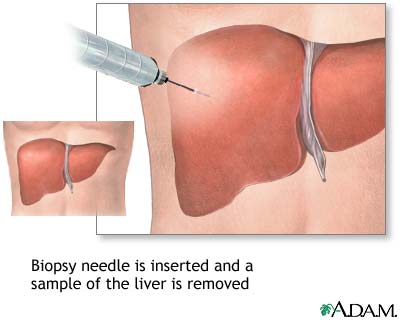
The family of one of about 2,300 patients who were notified that a San Pedro clinic unwittingly used contaminated needles to sedate patients contacted health officials Tuesday to report that the 76-year-old mother of two died from complications of hepatitis C.
County health officials sent notification letters to patients who were treated at the private medical clinic at 1412 W. Seventh St., advising them that they may have been exposed to infections such as hepatitis B, hepatitis C or, less likely, the virus that causes AIDS.
Those who received injections at the Advanced Pain Treatment Center between Jan. 16, 2006, and Aug. 18 of last year were advised to be tested. The letter was dated Jan. 4 and posted on the county’s website three days later.
“We recommend that you get tested for hepatitis B (HBV) and hepatitis C (HCV) as a precaution, even though the risk that you got infected at the time of your procedure is low,” wrote Dr. Laurene Mascola, chief of the Acute Communicable Disease Control Program at the Department of Public Health. “The test for HCV and HBV is a blood test. If you do test positive for any of these viruses, there are treatments available.”
The county agency was notified of a person with acute hepatitis C who had been treated at the clinic, but had no other risk factors for the disease, prompting the investigation that led to the notification letters.
Investigators identified “unsafe injection practices,” according to the department’s website.
Injections to sedate patients, not injections of medication, were thought to be at fault. A diagram on the agency’s website shows how a needle used to inject an infected patient could then contaminate a vial of saline. Even if clinicians used a clean needle to draw the saline for the next patient, the infection could be spread through the saline.
One of those letters was sent to the Torrance woman whose husband contacted county health officials Tuesday to report that his wife had been diagnosed with hepatitis C two years after receiving a series of injections for pain at the center.
She died of complications from the disease last may, according to the woman’s daughter, who spoke to City News Service on condition of anonymity.
The woman was referred to the clinic, established in 1999, by her orthopedic surgeon and began a series of treatments in April 2006. She had no known risk factors for hepatitis prior to being treated at the clinic, according to her family.
Upon receiving the Department of Public Health’s letter, the woman’s husband called the clinic and confirmed that his wife had, indeed, been a patient within the dates listed in the letter, according to the family. The husband then called DPH and was told that he was the first to report a fatality possibly linked to the tainted injections, the woman’s daughter said.
DPH officials said they could not immediately respond regarding her case, but did say that two cases of acute hepatitis among clinic patients – one HCV and one HBV – had been confirmed to date.
Testing for the potentially fatal blood-borne illnesses is important because many of those infected may not develop symptoms for a long time, according to medical professionals.
Though HIV infection is less likely, the department also recommended in the letter that patients be tested because it can spread in the same way as hepatitis, though “the spread of HIV by intravenous medications is not common.”
A clinic spokesman could not be reached for comment Tuesday afternoon, but told a television station earlier in the day that it is believed a nurse contaminated an IV line.
When asked if a nurse should know better than to cross-contaminate needles, Dr. Kamran Ghadimi responded, “Oh, absolutely, absolutely, yes, and she’s not a new nurse. She’s (been) practicing more than 20 years.”
According to a KCBS Channel 2/KCAL Channel 9 report, the nurse is still employed at the center, but no longer administering IVs.
The statement released by Public Health says the clinic “took immediate corrective action when notified of the issue by Public Health and has fully cooperated. The investigation is ongoing and Public Health will release more information when needed.”
HBV, HCV and HIV are required by law to be reported. Department officials sent separate notification letters to patients’ doctors, asking them to report any positive results within one business day.
A website has been set up with information about the alert at publichealth.lacounty.gov/acd/HepInfo.htm/.
The department plans to issue a full report on the investigation in June.